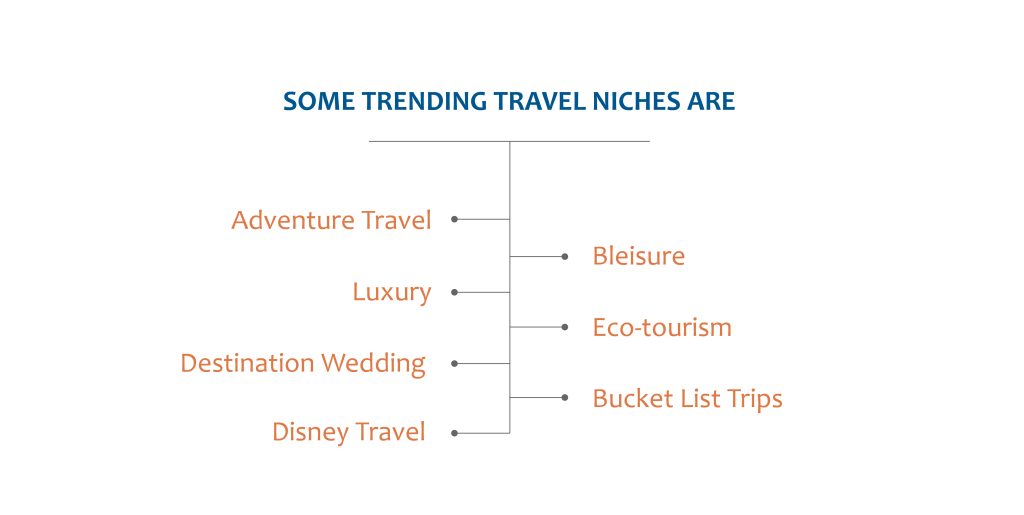BLOG
How to start an online travel agency
How to start an online travel agency
Are you planning to turn your passion for travel into a profitable business? Do you want to start your own online travel agency?
The online travel industry is expected to grow at a CAGR of 11.8% from USD 1100.78 billion in 2022 to USD 2403.22 billion by 2030.
The internet has reformed the way we travel and book vacations.
Online travel agencies (OTAs) have become increasingly popular in recent years, offering travellers a one-stop-shop for booking flights, hotels, car rentals, and other travel-related services.
If you are interested in starting your online travel agency, here are some steps to get you started:
Do Your Research
Starting any business requires extensive research and planning, and an online travel agency is no exception.
Before diving in, conduct in-depth market research, identify your target market, and explore your competitors.
Learn what they offer, how they operate, and what are their strengths and weaknesses. This information will help you to identify what you can do better and help you differentiate your business.

Choose Your Niche
There are several types of online travel agencies, from generalists to specialists. Identifying your niche is the key to standing out in a crowded market.
Consider your passions, interests, and expertise to determine the type of travel agency you want to create.
Some trending travel niches are:
- Adventure Travel
- Bleisure
- Luxury
- Eco-tourism
- Destination Wedding
- Bucket List Trips
- Disney Travel
Some popular OTAs are Kayak, Booking.com, Hipmunk, Tripadvisor, and others.

Create a business plan for your online travel agency
To build a successful online travel agency, have a solid business plan. This plan would include your target market, marketing strategies, financial planning, resources, and revenue streams.
A business plan helps in pricing strategy, management, developing contingency plans, and so on. A business plan needs to be updated regularly.
Secure Funding
Starting an online travel agency requires funding to cover expenses such as licence, website development, marketing, and travel booking software.
Look for funding options available in the market like loans, grants, crowdfunding, etc.
Be sure to research all the options and choose the one that fits your business.
Register your business
Registering a business includes numerous steps. Start by choosing a catchy name for your online travel agency.
Find out the legal structure of your online travel agency like sole proprietorship, partnership, limited liability company (LLC), or corporation.
Next, apply for licenses and permits. Also, register your online travel agency with appropriate government agencies so you can run your business seamlessly in the future.
Build Your online travel agency website
Your website is the face of your online travel agency, so invest enough time and resources to create a high-quality, user-friendly site.
Consider hiring a web developer or using a website builder to create a professional-looking site and optimize it for search engines.
Make sure that your website is easy to navigate and provides visitors with the information they need to make informed decisions.
Integrate Travel APIs with your online travel agency website
To offer customers a wide range of travel-related services integrate your travel website with travel APIs.
These APIs provide real-time data on flights, hotels, car rentals, and more.
Identify the APIs you need and work with a developer to integrate them into your site. Some popular travel APIs include Expedia, Skyscanner, and TripAdvisor.
Develop Your Marketing Strategy
Once your website is up and running, it’s time to start promoting your online travel agency.
Develop a comprehensive marketing strategy that includes social media, email marketing, paid advertising, and other tactics to reach your target audience and drive bookings.
Track your results, adjust your strategy as needed, and ensure you’re getting the most out of your marketing efforts.

Partner with suppliers
Before partnering with suppliers, it is essential to research potential suppliers. Look for suppliers who have a good image in the market and who offer competitive pricing.
Reach out to these suppliers and negotiate commission rates and payment terms. Later, sign a contract with them.
For instance, suppose your travel niche is adventure travel in the USA.
So, to expand your business, you need to partner with tour operators, accommodation providers, outdoor gear retailers, transportation providers, local guides, and so on.
Table of Contents
Invest in a Booking Engine to optimize your online travel agency
A booking engine is a platform that helps you manage all aspects of your travel business, including booking, invoicing, reporting, and customer relationship management.
An integrated booking engine makes your business open to your customers 24/7. Customers can book tickets and hotels at their convenience.
It automates the customer data entry process, lowering the possibility of mistakes. It also provides real-time updates on availability and pricing, reducing the chances of overbooking or double-booking.
A booking engine automates your upselling strategy.
It allows your customers to buy whatever they desire.
It helps you to learn about your customer behaviour, preferences, and booking trends. By analysing the data, you can customize pricing and marketing strategy.
Implement a chatbot
Implement a chatbot to interact with your customers via messaging apps, websites, or voice assistants.
It can answer usual questions, provide recommendations, and assist with bookings.
Chatbots can improve your customer service and reduce operational costs.
Offer mobile app booking
Mobile apps offer convenience, speed, and personalization.
By offering a mobile app booking option, you can reach a wider audience and provide a seamless booking experience.

Use data analytics
Data analytics can help you understand customer behaviour, preferences, and trends.
By analysing data, you can optimize your pricing strategy, personalize your marketing campaigns, and improve your customer service.
You can use tools such as Google Analytics, Tableau, or Power BI to gather and analyse data.
Starting an online travel agency can be challenging, but with the right strategy and mindset, you can build a successful business that provides valuable travel experiences to your customers.
By leveraging technology in your online travel agency, you can improve your operational efficiency, customer experience, and competitive advantage.
However, it is essential to balance technology with a human touch, as travel is a personal and emotional experience.
By following these steps, you will be well on your way to building a thriving online travel agency.
Related Topics
Trending Topics
Want to build Super app for your business?



